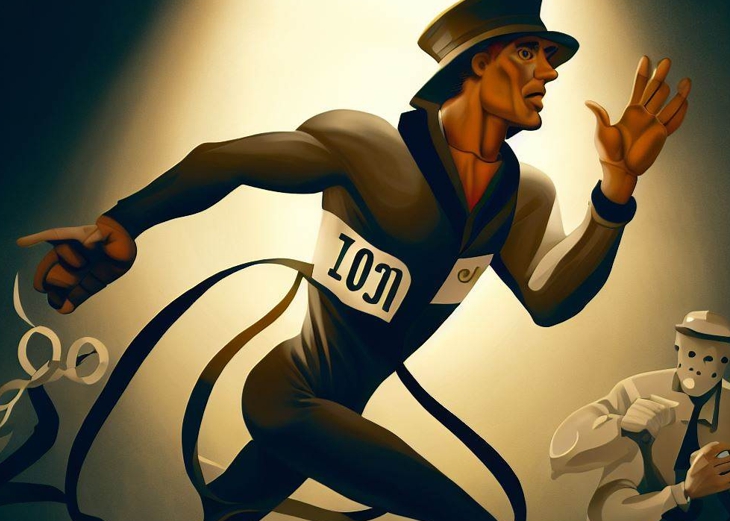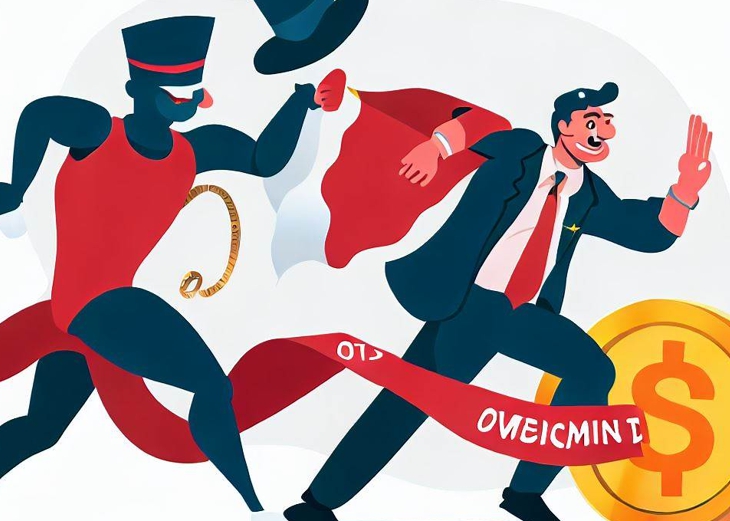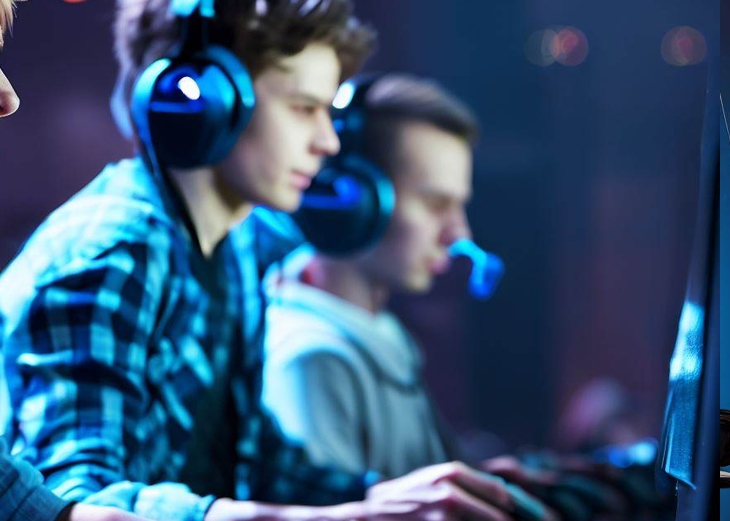Much is said about "Sponsor" or even "Sponsorship" or even "Commercial Partner". All very beautiful in speech and very unpolished in the leonine way of carrying out as a duly correct action, in many cases, or in most cases.
The coercion of those who venture to have the so-called "sponsors" towards the "sponsored", reaches the ridiculous point of limiting not only the athletes of certain franchises but an entire team, in the total and even contractual prohibition (again informal without any legal nature), that that particular athlete or electronic sports team cannot participate in a certain electronic sports organization, even if it is a sports administrator of this category - let those who understand Portuguese be amazed - or even the prohibition of its athletes from the relationship between friends of certain organizations, because it is not his (the "Sponsor") will of this interaction or because he does not want contact with others who compete with his trade, configuring nothing but something slave-like, discriminatory and submissive, as well as illegal in sports, in the civil part and even in the humanitarian part.
These companies that practice such attitudes are at least contrary to any commercial competition within their area of operation, as it is exactly the opposite that the trade demands, showing their leaders/owners total unpreparedness and professional/commercial immaturity in addition to the legal ignorance of their acts towards these athletes and teams. In addition to this, there is also the total disregard of what is democratic, free and constitutional for any Brazilian citizen.
Imagine NIKE prohibiting athletes who use its articles and its brand from competing in places, organizations and events where they have competitors, or places where the brand is not present! It is at this moment that maturity and suitability will be present, in addition to ethics and good business conduct to exercise even the part that belongs to him as a "sponsor" when duly and regularly assumed and practiced.
On the other hand, the several, or specific, organizations that promote electronic sports events, which use these businesses that act in the ways described in the paragraphs above as supporters, partners or promoters, whose practices are those exposed and treated here in the context of the article, which are harmful to democracy, sports and even unconstitutional, are at least equal to these businesses themselves in this practice and in their consent, and they sign under these practices promoting totally contrary and unscrupulous attitudes in any area that we evaluate and judge such attitudes.
And not to mention these contracts between athletes and these businesses, where there is not even a link many times, with the legality itself, both in the registration of the contract, because it is signed between parties that are not in both cases legally constituted legal entities, and often even involving minors.
Even sadder is the exchange between these Sponsors and what they offer to those who fall into this pernicious network, practically handouts in exchange for an advantage that only they can have in placing their brands on any and all social media of these teams and athletes, making them act as commercial agents, without any salary or bonus other than discounts on purchases or cumulative credits that materialize after months and that if the purchase in these stores comes with an indication of these teams and athletes, but for that read the other article entitled "The Actuality of eSport in Brazil", also in "The Ethics of eSports and in Life" and in "Reality shock in eSports in Brazil". To access these articles, just copy the address or click on it: http://lnee.com.br/site/index.php/rede-social-e-sport/blog-do-e-sport
And from now on I do not mention any franchise or its athletes and teams, as an example, so that it is not said that I rebel against any of them, whether the so-called "sponsors", or any denominations that can be equated with the already informal use of these same terms.
Lembrando também que o princípio da democratização é preceito constitucional. Onde houver discriminação, sob que forma seja, violada estará a lei maior, e assim será passível de ações de imediata correção no âmbito da Justiça.
“O Princípio da liberdade está assentado no preceito constitucional segundo o qual ninguém será obrigado a fazer ou deixar de fazer alguma coisa senão em virtude de lei” (Const. Fed., art. 5º, II).
“Quando praticado o esporte de forma profissional, o atleta passa a ter uma remuneração pactuada num contrato de trabalho e se torna um empregado de uma entidade desportiva, com os direitos e deveres de qualquer outro empregado. Encerrado o período ajustado no contrato, o atleta profissional é livre para trabalhar para outra entidade, respeitadas as regras de transferência de cada modalidade desportiva.
Também vale lembrar que a prática do desporto de rendimento (profissional) obriga a submissão à lei e às regras da respectiva prática desportiva, nacionais e internacionais, o que já não ocorre com o desporto de participação, embora possa observar algumas daquelas regras, como prática de desporto formal.
Se os atletas não recebem qualquer espécie de remuneração pecuniária e não assinam contrato de trabalho, nem recebem incentivos materiais e não assinam contrato de estágio, a entidade pratica um desporto formal de modo amador. Quando amador, o atleta nada recebe da entidade desportiva. Isto é o que está na lei.” (em comentário ao inciso III da Lei Pelé), bem isso como sabemos não é verdade pois um Clube, ou Time pode sim dar algum tipo de ajuda ou benefício que lhe caiba prover.” (Lei Pelé comentada).
Cabe aqui a citação também da Lei Pelé para, válida para agentes do desporto e também cabe a esse interpretação livre de nossa parte, para os ditos “sponsors”:
“São nulos de pleno direito os contratos firmados pelo atleta ou por seu representante legal com agente desportivo, pessoa física ou jurídica, bem como as cláusulas contratuais ou de instrumentos procuratórios que:
I – resultem vínculo desportivo;
...
III – restrinjam a liberdade de trabalho desportivo;
IV – estabeleçam obrigações abusivas ou desproporcionais;
V – infrinjam os princípios da boa-fé objetiva ou do fim social do contrato; ou
VI – versem sobre o gerenciamento de carreira de atleta em formação com idade inferior a 18 anos.” (Lei 12.395/2011)
A parte acima, a partir desse parágrafo, e comentários é de minha autoria, abaixo desse parágrafo adiciono a parte do nobre colega e profissional especializado no direito desportivo, Presidente da Comissão de Esporte da OAB Jundiaí, o caríssimo Dr. Édio Hentz Leitão.
“O Desporto Eletrônico em nosso país está buscando seu reconhecimento e a devida profissionalização.
A prova disso é a criação da LNEe (Liga Nacional de Esportes Eletrônicos), das Federações e da Confederação, onde teremos todo um conjunto de normas que irão regular nossas competições e atividades correlatas, assegurando maior transparência, credibilidade e segurança.
Diante disso é preciso que todos os participantes busquem uma maior organização e profissionalização para que tenham condições efetivas de atenderem as normas que irão regular as nossas competições.
Além do mais, seguindo essa linha de profissionalização e organização, as equipes precisam buscar parceiros que efetivamente estejam empenhados em desenvolver um trabalho sério e comprometido com o desempenho das equipes nas competições.
And in this sense of partnership, it is important that teams and sponsors are aware of this hierarchical and professional system that Electronic Sports is forming.
When we talk about a hierarchical and professional system with rules and regulations, it is important that all those involved, teams, business partners and sponsors are aware that to be part of this structure, it is necessary to respect the rules issued by the management entities.
Therefore, the relationship between sponsor and sponsored needs to be thought of within this context. Every sponsorship contract needs to be created in a win-win way, that is, the interests of the players, the teams and the sponsors need to be preserved.
If for players and teams the important thing is to participate in competitions, for sponsors the important thing is brand visibility. These interests need to be reconciled.
Given this, every sponsorship contract needs to be based on fair, loyal and balanced exchanges.
Depending on the situation, a contract may not have its validity recognized if a certain "domination" of the "stronger over the weaker" is characterized, breaking the balance and the need for fair exchanges.
Thus, it is important that these sponsorship contracts do not compromise the performance of the teams or, in a way, do not harm their sponsors during the competition, under penalty of them being harmed sportingly and thus compromising the participation in the competitions organized by the responsible entities.
The success of eSports depends on all of us. " – Édio Hentz Leitão, Lawyer specialized in Sports Law, President of the Sports Commission of the OAB – Jundiaí.




